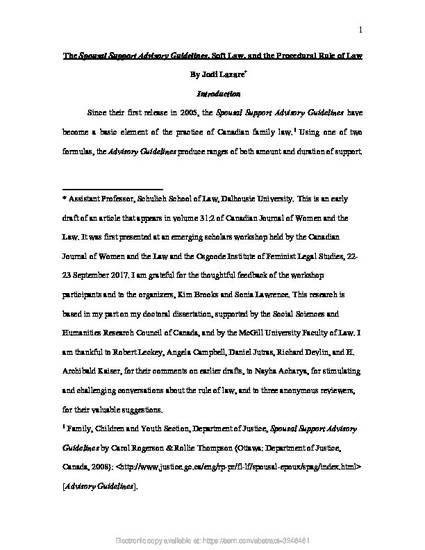
- Spousal Support,
- Spousal Support Advisory Guidelines,
- Soft Law,
- Rule of Law,
- Economic Justice,
- Divorce Act,
- Judicial Reliance
The Spousal Support Advisory Guidelines facilitate discretionary spousal support determinations under the Divorce Act. Non-binding in nature, they are expected to restore some transparency to an uncertain and unpredictable remedy and to benefit dependent spouses who might previously have been deterred from claiming support. They may thus be seen as an important tool for advancing economic justice at family breakdown and promoting substantive economic gender equality. Several Canadian appellate courts have enthusiastically endorsed them. Others object to their application, grounding their resistance in their unofficial and non-binding character. This paper responds to that objection, based on the constitutional separation of powers and the rule of law.
Drawing on literature in constitutional law, administrative law, and political science, I suggest that judicial reliance on the Advisory Guidelines does not offend the rule of law. Instead of the narrow and formalistic principle set out by the Supreme Court of Canada, adopting a thicker understanding of the rule of law, grounded in participation and deliberation, imbues the Advisory Guidelines with normative force and affirms the legitimacy of judicial reliance on them.

Authors Manuscript of article published in the Canadian Journal of Women & the Law, University of Toronto Press. https://doi.org/10.3138/cjwl.31.2.05